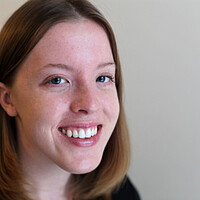NATO members gather in Wales with Russia at the top of the agenda
Loading...
Russia faced harsh criticism at the start of a North Atlantic Treaty Organization (NATO) summit in Wales today with the 28 member state alliance reevaluating its security role in Europe amid the ongoing crisis in Ukraine.
NATO Secretary General Anders Fogh Rasmussen said the alliance continues to witness “Russian involvement in destabilizing the situation in eastern Ukraine” even after Russian President Vladimir Putin proposed a seven-point peace plan. Russia maintains it has not armed rebels in eastern Ukraine or contributed to the conflict there.
Early reports from the summit suggest NATO leaders are set to agree to create "rapid reaction" forces that could be deployed in less than two days to regional crisis spots. Countries close to Russia, especially Poland, have called for NATO to permanently station troops on their territory, but Reuters reports this is unlikely to happen because it would break a 1997 agreement the alliance made with Russia.
As the Monitor reported, the creation of rapid response forces would thrust the United States into the center of any future conflict.
Though these measures appear largely symbolic, they would have the impact of putting substantial numbers of US troops on the front line between NATO and Russia. Should any kind of unrest break out, US troops would be first in harm's way. Experts say that's needed to calm the heightened anxieties among Russia-adjacent alliance members over Moscow's heavy-handed methods of "protecting" Russian-speakers in eastern Ukraine.
…
The Kremlin's likely answer will be to make sweeping revisions to the country's official military policy, to clearly identify NATO as an adversary. That would likely be followed by redeployments of troops and air defenses from Russia's interior closer to Europe. It might also station greater numbers of Iskander short range missiles and other offensive weaponry in its Baltic enclave of Kaliningrad.
As the BBC’s Jonathan Marcus reports, the summit is meant to “reassure worried Nato members and to send clear signals to Moscow about Nato’s resolve.”
Russia is, firstly, overturning the post-Cold War security order in Europe set out in the Nato-Russia Founding Act of 1997.
This document, signed in Paris by Nato leaders and then-President Boris Yeltsin, set out to build “a lasting and inclusive peace in the Euro-Atlantic Area.”
It contained an explicit requirement to respect the sovereignty, independence and territorial integrity of all states. Nato’s view is that Russia's behaviour in Ukraine is a blatant breach of the principles contained in the Founding Act.
Ukraine’s recent ambitions to join NATO caused Russian foreign minister Sergei Lavrov to warn before the summit that both NATO and the US should stay out of the current situation. Mr. Lavrov said Ukraine’s call to drop its non-aligned member status was “a blatant attempt to derail all efforts aimed at initiating a dialogue on ensuring national reconciliation.”
Twelve countries are expected to join Ukraine and the US in a military exercise later this month in western Ukraine.
The ongoing fighting in eastern Ukraine has taken a heavy toll with the United Nations reporting close to 2,600 deaths with more than one million people displaced.
The summit comes a day after France decided to suspend its delivery of warships to Russia with French President Francois Hollande’s office saying actions by Russia have hurt “the foundations of security in Europe.”
Ukrainian and Russian representatives will meet in Minsk, Belarus tomorrow to continue talks aimed at ending fighting between Ukrainian government forces and pro-Moscow rebels that began in April.








